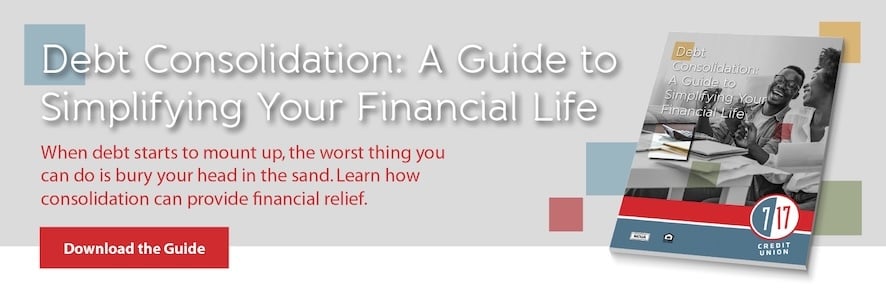- 7 17 Staff
Steps to Implementing a Successful Debt Management Plan

If you’re feeling overwhelmed by your debt, you’re likely looking into the options available to you. One of the paths toward reducing your stress and financial burden is a debt management plan. However, choosing the right plan for you involves looking at several factors, including costs, impact on your credit score and the licenses and certifications of the debt management agency. Here’s what you need to know about types of plans and how to compare your options.
What Is a Debt Management Plan?
A debt management plan is an agreement between you and a credit counseling agency. The agency helps you pay off credit cards and personal loans by working with your creditors to come up with a favorable payoff plan.
While negotiating with your creditors, the agency will also create your debt management plan, which consists of one payment per month that covers all of your negotiated minimum payments and any agency fees.
The credit counseling agency distributes your payments to your creditors based on your plan. The goal of debt management plans is to pay off your debts within 3-5 years while also reducing your fees and interest and avoiding bankruptcy.
Benefits of Debt Management Plans
- Your debts will be consolidated into one payment.
- It can pay off your debt quicker than doing it on your own.
- Your interest rates may be reduced.
Risks of Debt Management Plans
- Debt management plans are for credit card and personal loan debt and can’t be used for student loans or tax obligations.
- You’ll be unable to use credit cards or open new lines of credit while you’re on a debt management plan.
- If you miss a payment, it may end any interest rate cuts you received as well as derail your plan.
How To Choose a Plan That’s Right for You
Before agreeing to a plan, you should consider:
Your Debts
Debt management plans are best for credit cards and personal loans (known as unsecured debts.) A secured debt is one that is tied to an asset, such as a mortgage or auto loan. If you have secured debts, you may want to consider other debt management options.
Fees
You’ll be asked to pay an initial enrollment fee and then monthly agency fees for as long as you’re on the plan. Make sure you know upfront what your obligations are for these additional costs. And remember: If the company is trustworthy, they won’t ask you to pay for services you haven’t received yet.
Your Credit Score Impact
As part of a debt management plan, you’ll have to close all of your credit cards and you won’t be able to open or use any new credit cards. Closing accounts can hurt your credit score, so it’s critical to consider this impact. However, keep in mind that your credit score will eventually improve as your balances are reduced.
The Agency’s Reputation and Certifications
Do thorough research on the agency to ensure they’re legitimate and licensed to operate in your state. Ask if their employees are also licensed and if the agency belongs to associations such as the National Foundation for Credit Counseling.
Exploring Your Options: Alternatives To Debt Management Plans
A debt management plan may not always be the best option, whether because of the types of debt you carry or because you may not feel comfortable being unable to open new lines of credit while on the debt management plan. Here are some alternative options that are available to you:
DIY Debt Management
This consists of a debt snowball or debt avalanche method. The debt snowball method involves putting as much extra funds as you can toward your smallest debt. Once that debt is eliminated, then you put your extra funds plus the minimum payment of the now-eliminated debt into the next smallest debt until you’re debt-free.
The debt avalanche method involves the same payoff strategy, but you’ll start with your highest interest balance, moving on to the next highest interest until you’re debt-free.
Debt Consolidation
Debt consolidation simplifies your payments. There are two approaches to debt consolidation—either a large personal loan or a balance transfer credit card.
By taking a loan, you’ll pay off as many debts as you can, and then your payments will be made on the personal loan instead of the individual debts. With a balance transfer credit card, you’ll transfer the balances of as many credit cards as possible over to the new credit card. However, you won’t be able to transfer a balance from a specific credit company over to a new card from the same company.
With debt consolidation, it’s important to be disciplined and avoid using your cards that now have no balances on them. If you do need to use them to avoid them closing out, then make sure it’s for a small purchase that you can immediately pay off.
Take Control of Your Debts
Carrying a large amount of debt can be overwhelming, but it doesn’t have to be this way. Discover how to simplify your finances by consolidating your debts with our free resource, Debt Consolidation: A Guide to Simplifying Your Financial Life.
